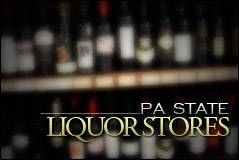Media
How Many State Liquor Stores Should Pennsylvania Have?
 Ben Waxman of the Philadelphia Daily News raises an interesting question about liquor privatization. Noting public support for liquor privatization, he posits whether it would be better to sell off the existing state stores, or license a larger number of private retailers. Rep. Turzai’s proposal, for instance, would auction off 750 retail licenses (up from the current 600 stores) and 100 wholesale licenses. These would remain stand-alone stores that have limited competition for selling wine and liquor (i.e., vineyards would still be able to sell their wine on the premises).
Ben Waxman of the Philadelphia Daily News raises an interesting question about liquor privatization. Noting public support for liquor privatization, he posits whether it would be better to sell off the existing state stores, or license a larger number of private retailers. Rep. Turzai’s proposal, for instance, would auction off 750 retail licenses (up from the current 600 stores) and 100 wholesale licenses. These would remain stand-alone stores that have limited competition for selling wine and liquor (i.e., vineyards would still be able to sell their wine on the premises).
There is little doubt that a true marketplace would feature many competitors. Licensing thousands of retailers would allow far greater competition, lower prices and better service than a limited number of locally monopolistic liquor stores licensed by the state, as Rep. Turzai’s proposal creates, which in many ways is a compromise between the present reality and a free market.
Waxman went on to compare Pennsylvania to New Jersey, which has many more stores selling liquor, all licensed by the state, and related that to the incidence of alcohol-related traffic fatalities. However, he originally pulled numbers from the PA State Police, which seem to be only those accidents they investigated, and excluded numbers from local police.
Data from the National Highway Traffic Safety Administration indicates Pennsylvania has a higher rate than New Jersey in alcohol related fatalities, despite fewer stores.
| State | Liquor Stores | Alcohol-Related Traffic Fatalities, 2009 | Population, 2009 | Rate (per 1,000,00 residents) |
| PA | 621 | 406 | 12,604,767 | 3.22 |
| NJ | 1,800 | 146 | 8,707,739 | 1.68 |
The number of liquor stores is not the only factor in drunk-driving accidents, and a two-state comparison is not conclusive, but limiting the number of stores has not prevented accidents.
Indeed, this evidence is backed by looking at all 50 states. John Pulito and Antony Davies of Duquesne University found states, like Pennsylvania, with “full control” actually have alcohol-related traffic fatality rates 25 percent higher than license states. Plus, the report noted no difference in underage drinking and binge drinking rates in license and control states.
As Waxman originally pointed out, allowing real liquor store competition would benefit Pennsylvania consumers most, but it wouldn’t, as he speculated, increase DUI rates or alcohol-related fatalities.